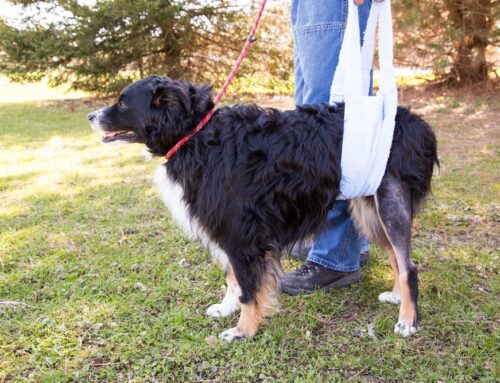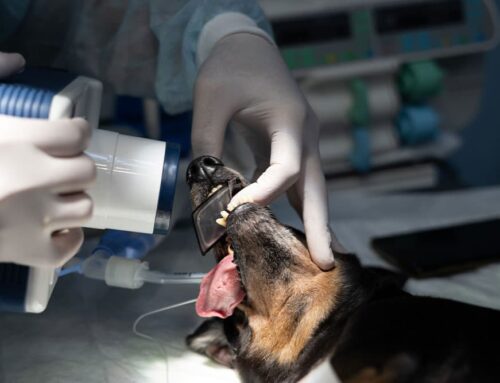People set New Year’s resolutions meant to help reach personal goals, and they also can be set to reach wellness and lifestyle goals for pets. But, where do you start to determine the best resolutions for your pet? Use our South Shores Pet Clinic team’s guidelines to determine the resolutions that will best benefit your pet this year.
Assess your pet’s physical health
Your pet needs good health to enjoy life and prevent pain and suffering. Regular wellness examinations at least yearly allow your veterinarian to assess your pet’s physical health, and identify, treat, or prevent common problems that could hold your pet back—so visiting the veterinarian more frequently is a great first resolution. Once our veterinary team identifies your pet’s issues, you can resolve to prevent or correct these problems. Here are a few common issues we see in dogs and cats:
- Obesity — About half of dogs and cats are overweight or obese, which puts excess strain on their joints, reduces immune system function, creates systemic inflammation, and increases their diabetes risk. A resolution to stick to a veterinarian-recommended diet and exercise plan can go a long way for your pet’s health.
- Poor skin and coat — Flaky, itchy skin and a dull, lackluster coat can be caused by disease, and also by a poorly balanced diet. Ask your veterinarian for a high-quality diet or supplements to help your pet look and feel their best.
- Dental disease — Pets’ teeth require the same dental care as humans—a combination of professional cleanings and daily at-home brushing. Left untreated, dental disease leads to painful tooth loss and infections that can have a far-reaching impact by damaging major organs. Resolve this year that your pet’s teeth will be cleaned by your veterinarian, and that you will implement a daily brushing routine.
- Parasites — You may think parasites are simply annoying, but they can transmit deadly diseases to your pet. Fleas, ticks and heartworm-carrying mosquitoes are tiny creatures with dangerous potential. Vow to start a comprehensive parasite prevention program this year so your pet is protected against serious illness.
- Infectious diseases — Rabies, distemper, feline distemper, and parvovirus are still highly prevalent among pets and wildlife, and can be fatal for pets of any age. Keeping up with pet vaccinations is imperative from puppy- and kitten-hood to seniors, so ask your veterinarian if your pet needs any vaccines this year.

Assess your pet’s mental health
Thanks to the COVID-19 pandemic, and big names like Simone Biles showing the world their innermost demons, the mental health discussion no longer carries a stigma. Everyone has embraced this change, and more resources are now available to support our mental and emotional wellness. Translate this trend by humans to your pet. Is your pet happy and emotionally well? Pets experience fear, anxiety, and stress related to everyday occurrences or certain situations (e.g., the veterinary visit, loud noises, strangers) that can greatly diminish their quality of life. Signs of stress are extensive and varied, but most commonly include:
- Excessive barking, whining, growling, hissing
- Pacing or hypervigilance
- Panting or drooling in dogs
- Shaking, freezing, or moving in slow motion
- Dilated, widened, or squinty eyes
- Avoiding eye contact
- Ears held back, tail tucked under or tightly around the body
If your pet seems stressed during specific situations, or seems anxious all the time, check with your veterinarian to determine next steps. Medications and supplements are foundational tools to deal with these issues, but you can also set resolutions that improve your pet’s mindset at home:
- Get more exercise — Exercise releases feel-good hormones that improve the mental state and provides an outlet for excess energy, which may frustrate under-exercised pets.
- Play more — Play deepens bonds with your pet, helps them stay more active, and keeps them mentally engaged, especially as they age.
- Pay personal attention to your pet — Set aside time each day for an activity that your pet enjoys, such as exercise, play, grooming, or training.
- Explore social opportunities — Dogs who thrive in social situations will benefit from interacting with other dogs at daycare, meet-up groups, or play dates with trusted friends. Avoid the dog park, where pet health and play suitability cannot be adequately supervised.
- Set a consistent routine — Anxious pets—and humans—much prefer a predictable, reliable routine. Try to stick to routine wake up, feeding, exercise, play, and bed times this year.
- Remove or adjust household stressors — Look for improvements to your household from your pet’s perspective. Is one pet bullying your cat? Provide vertical space for your cat with shelving and add more resources. Is your dog afraid of the outside stairs? Implement a training routine and place a ramp they can use in the meantime. Get creative and ask your veterinarian for any help that you need.
New Year’s resolutions can strengthen your bond with your pet, and improve their health along the way, and South Shores Veterinary Clinic can help you reach your pet’s wellness goals. We’re always here to answer questions about your pet’s health and emotional wellbeing. Contact our team to schedule a wellness visit or consultation and start working toward your 2023 pet goals.







Leave A Comment